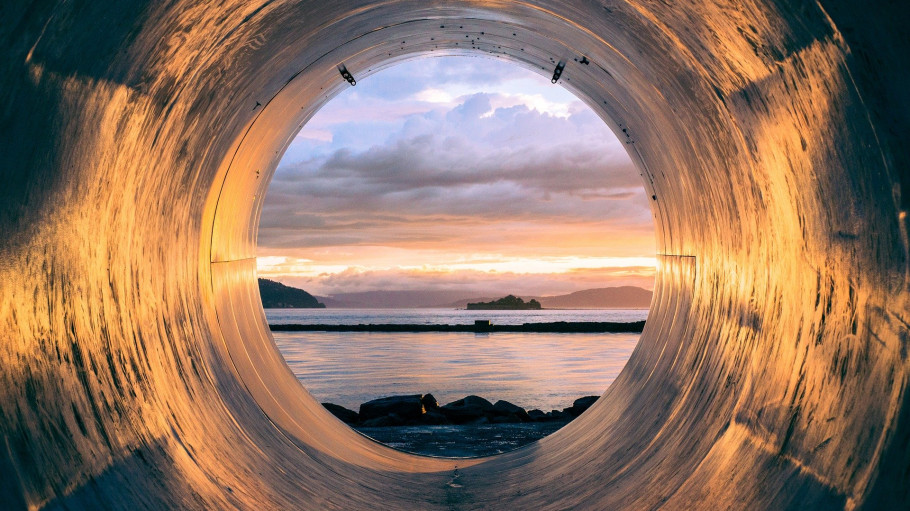
Press releases » World’s steel producing regions call for extension of Global Forum on Steel Excess Capacity – Europe further hit by effects of overcapacity
World’s steel producing regions call for extension of Global Forum on Steel Excess Capacity – Europe further hit by effects of overcapacity
Recent updates

Brussels, 22 October 2019 – The European Steel Association (EUROFER) has today issued a joint release alongside eighteen other regional and national steel associations calling for the Global Forum on Steel Excess Capacity to be extended. At the same time, the crisis in the European steel industry – largely a result of the very overcapacity the Global Forum exists to fix – continues to intensify.
“Europe-based steelmakers and those in their partner regions across the whole world are making it clear today that they believe the extension of the Global Forum on Steel Excess Capacity is essential to effectively reduce global production overcapacity in the sector”, said Axel Eggert, Director General of EUROFER.
The Global Forum was established in late 2016, on the instruction of G20 Leaders. It set out to gather information and report on the evolution of steel supply and demand conditions, steel production capacity, and government policies that lead to global overcapacity, such as subsidies. The Forum’s work has already produced results, such as detailed statistics on steel capacity and production around the world and has instigated work to cut excess capacity where it is needed.
“Meanwhile, the impact of this overcapacity is causing ructions around the world. The trade wars being waged, and the resultant rise of protectionist measures affecting products well beyond our sector, has steel overcapacity at its root”, emphasised Mr Eggert.
“Even with the EU Steel Safeguard in place, the EU is having a torrid time. Apparent demand for steel is expected to fall by 3.1% in 2019, even as imports surge in often violently unpredictable ways. We therefore ask the EU Commission to further strengthen the safeguards.”, added Mr Eggert.
Steel imports into the EU rose by 12% in 2018, to the highest recorded level. Today, imports are still well above the 2016 & 2017 levels, which were themselves records at the time. Surges are at least as damaging as sustained high import levels, and the EU saw a 50% drop in total finished steel imports in June 2019, followed by a 50% rise in July when the new safeguard quota period opened.
“Overall global steel overcapacity has fallen only slowly in the past few years, if only because China, in particular, is ramping up production – up 9.1% in the 8 months to August 2019, even as production in Europe has fallen by 2.9%, and in the majority of other regions is also flat or declining. Global overcapacity still stands at some 500 million tonnes and the OECD expects it to rise again in 2020”, stressed Mr Eggert. “This is a deepening crisis which has already seen a number of European steel plants idled or closed, with thousands of steel workers being laid-off over the past year”.
“We call for the Global Forum on Global Excess to have its mandate extended – and for it to continue vigorously for the foreseeable future, either with all members or with the supportive members of the international community”, concluded Mr Eggert.
***
Contact
Charles de Lusignan, Spokesperson and head of communications, +32 2 738 79 35, (charles@eurofer.be)
About the European Steel Association (EUROFER)
EUROFER AISBL is located in Brussels and was founded in 1976. It represents the entirety of steel production in the European Union. EUROFER members are steel companies and national steel federations throughout the EU. The major steel companies and national steel federations in Switzerland and Turkey are associate members.
About the European steel industry
The European steel industry is a world leader in innovation and environmental sustainability. It has a turnover of around €170 billion and directly employs 330,000 highly-skilled people, producing on average 160 million tonnes of steel per year. More than 500 steel production sites across 22 EU Member States provide direct and indirect employment to millions more European citizens. Closely integrated with Europe’s manufacturing and construction industries, steel is the backbone for development, growth and employment in Europe.
Steel is the most versatile industrial material in the world. The thousands of different grades and types of steel developed by the industry make the modern world possible. Steel is 100% recyclable and therefore is a fundamental part of the circular economy. As a basic engineering material, steel is also an essential factor in the development and deployment of innovative, CO2-mitigating technologies, improving resource efficiency and fostering sustainable development in Europe.
Developed with the support of the Offshore Wind Foundation Alliance and European Wind Tower Association, the position paper outlines the strategic importance of wind components for Europe’s green transition and calls for targeted measures to strengthen their role within the NZIA.
Brussels, 2 April 2025 - The latest data unveiled by the OECD in its meeting in Paris draw an extremely worrying picture, where global steel excess capacity is expected to grow from an estimated 602 million tonnes in 2024 to 721 million tonnes by 2027 – over five times the EU's steel production. The European steel industry - already severely hit by the spill-over effects of global overcapacity and the U.S. steel import tariffs - reiterates the crucial need for strict and effective EU post-safeguard measures to ensure its survival.
Brussels, 19 March 2025 – The Steel and Metals Action Plan, unveiled today by the European Commission, provides the right diagnosis to the existential challenges facing the European steel industry. Concrete measures need to follow swiftly to reverse the decline of the sector, re-establish a level playing field with global competitors, and incentivise investment and uptake of green steel in the market.